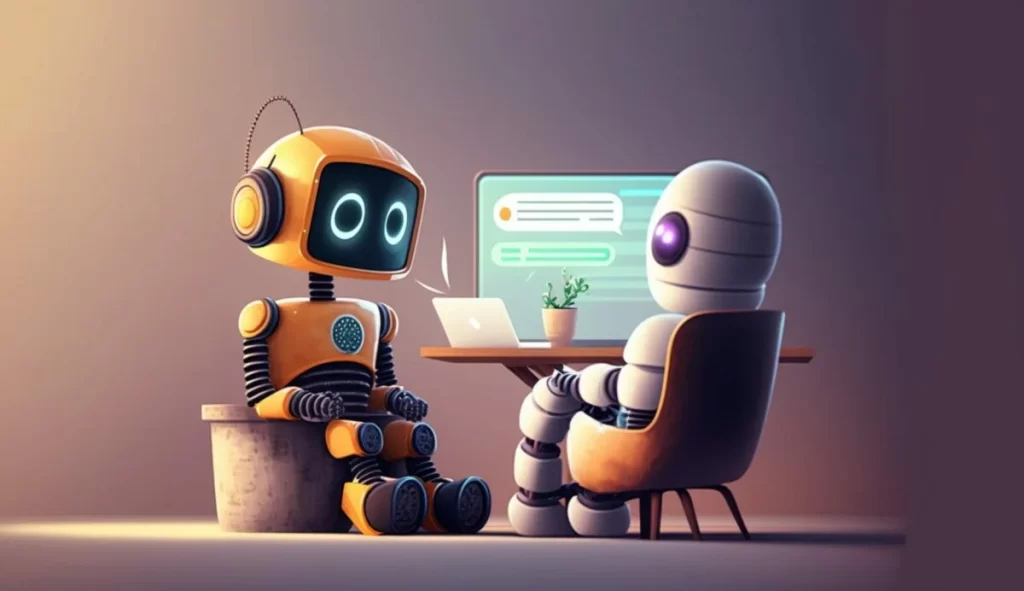Consistency in customer service is a real problem for businesses as it can really frustrate customers: customers want to feel special, but mechanical responses can just add insult to injury.
While chatbots can be used to reduce average call handle time and customer effort, this may come at the expense of the customer experience. And, while chatbots can answer automated low-level questions 24/7, they can free up agents to handle escalations and more complex questions or even resolve these inquiries entirely – that is, if they’re functioning correctly. By letting our bots do what they’re good at, such as answering simple questions, we can improve agent efficiency and reduce resolution times.
Increased Efficiency
Since chatbots are always available when customers want to interact with them – unlike human agents, who have working hours and take breaks – they can be better positioned than human agents to handle straightforward requests; the time saved by both parties not having to deal with these can be used to tackle something more complicated. There, customer service chatbots can fast-track responses to FAQs, minimising agent interactions and enhancing efficiency. Bots can also leverage customer data for more personalised engagements – and even serve content and recommendations at speed. For instance, AI can easily handle run-of-the-mill inquiries such as changes in account status or warranty filings. And AI can tell when handoff occurs, and provide insights that help the agent tailor the response to the individual needs of each customer. Additionally, AI offloads repetitive and less complex agent tasks, leading to enhanced performance and satisfaction at the same time.
Higher Customer Satisfaction
Brands are able to offer efficient and quick chatbot services to customers This is highly praised by many consumer brands – chatbots often have their knowledge bases readily embedded, and customers can troubleshoot on their own to find the answers they need (by following step-by-step troubleshooting steps or searching on their own), thus getting the answers more swiftly, without reaching out to live support. This reduces the costs and overhead involved in providing live support as well. Furthermore, some are accessible 24/7 to help customers after-hours and on holidays, which is extremely useful for retailers with an international presence where customers need help at all hours of the day or night. With AI chatbots, users can personalise customer experiences, being prompted about products or services that seemingly support or suit the user based on his or her behaviour or stated preferences. Depending on the company’s market efforts, bots speak to the customer in multiple languages and are configurable to modulate emotion during customer service interactions, carefully tracking feelings while offering sympathetic support.
Lower Costs
AI-fronted customer support tools reduce staffing costs, as fewer humans need to be hired and trained, and even salaries are lower. Operations costs are cut through more efficient processes and lower escalations rates. Similarly, chatbots can be programmed to reflect business’s brands and voices, a benefit that erases the need (and cost) of retraining when new employees come onboard. In particular, they can be beneficial to companies that experience a lot of turnover among human customer service representatives. Using AI, you give your customers the option of changing their account details or finding their warranty status without having to call your customer service department. The same interactive self-service portal enables customers to find answers and resolve their problems independently. It is also possible for the best chatbots to sense when they ought to hand over the case to a warm and fuzzy human agent. And most AI-powered chatbots run 24 hours a day, seven days a week (as long as you speak their computer language), so there’s no need for your employees to volunteer to work evenings or weekends.
Increased Customer Engagement
With AI chatbots responding to routine enquiries, your reps are free to devote more attention to each inquiry as it comes in – giving each customer and agent a better experience with fewer call-backs and higher satisfaction among all. For one thing, as long as Chatbots accept requests within pre-conditioned frameworks and base their responses on the same single data source, they transfer the expertise of better and more highly trained members of staff to other, possibly less skilled, staff. They provide a consistent, evenhanded service. They can answer customer questions and take over simple service requests. Guided by processes, bots can manage support enquiries – even collect customer insights to help real customer representatives reprioritise and personalise interactions (for example, speeding up service times for valuable customers, such as higher-paying ones, across all channels – voice, email, chat) – saving a lot of money while improving CX, reducing escalations rates. Sure, implementation and maintenance costs could get you into a real quagmire.







More Stories
Building Your Dream Team: How to Establish a Hybrid Human-AI Agent for 24/7 Global Support
Building a Proactive Support Strategy Using Predictive Analytics and Customer Data
Leveraging Customer Support Data for Predictive Product Development in SaaS